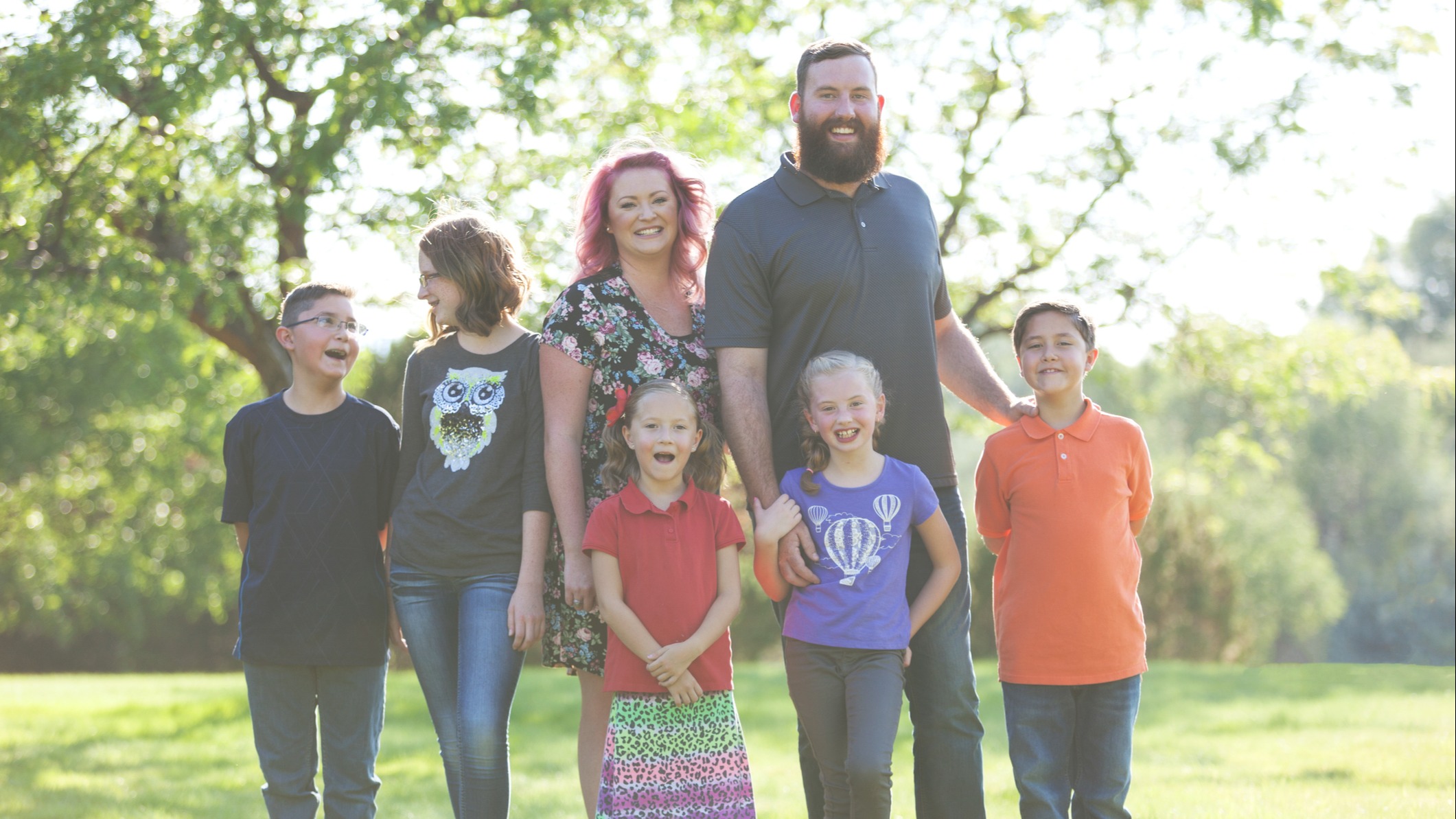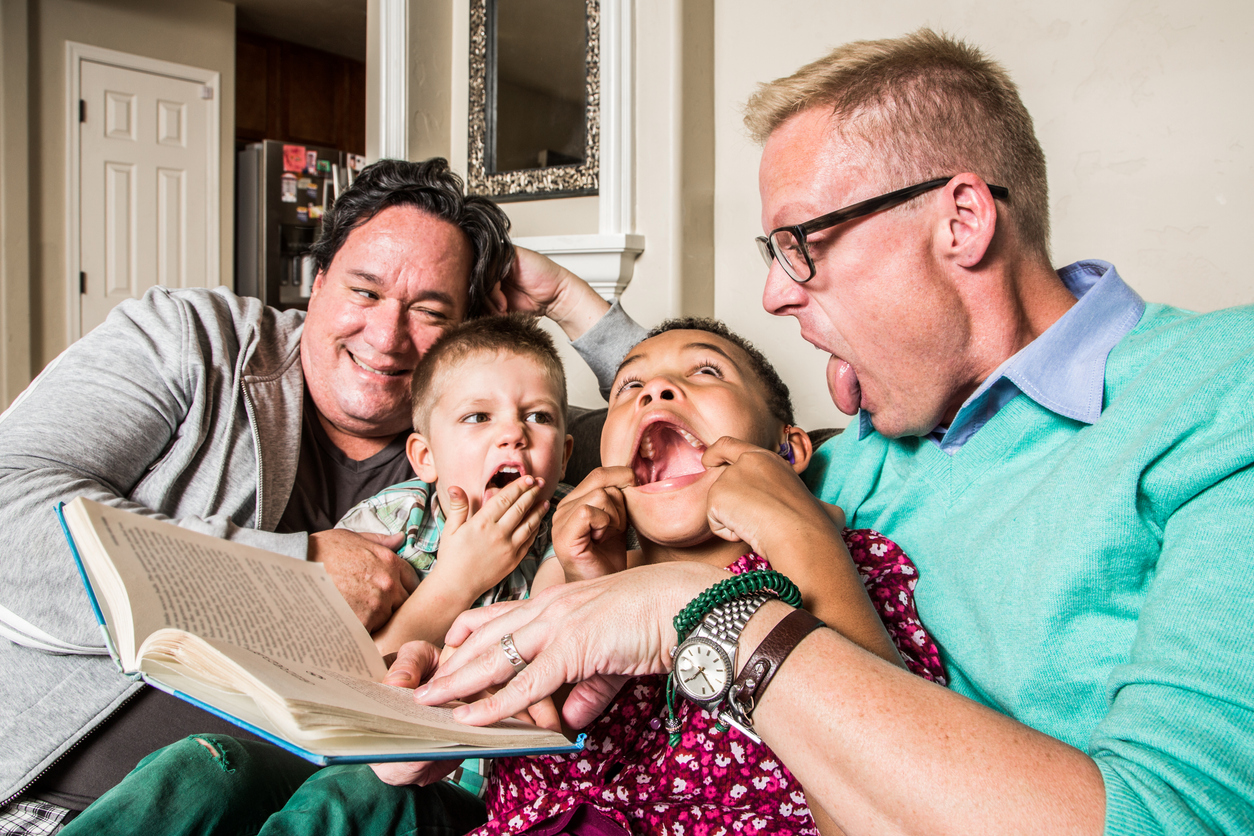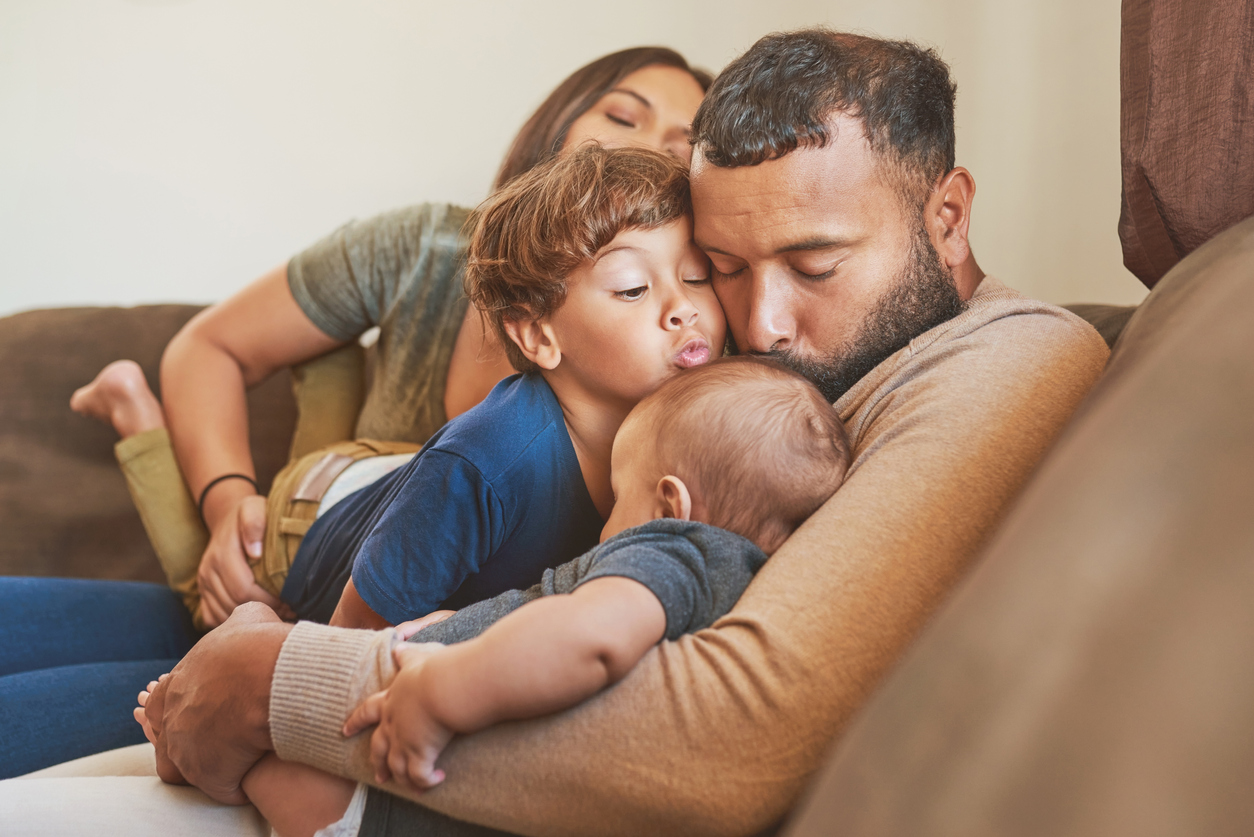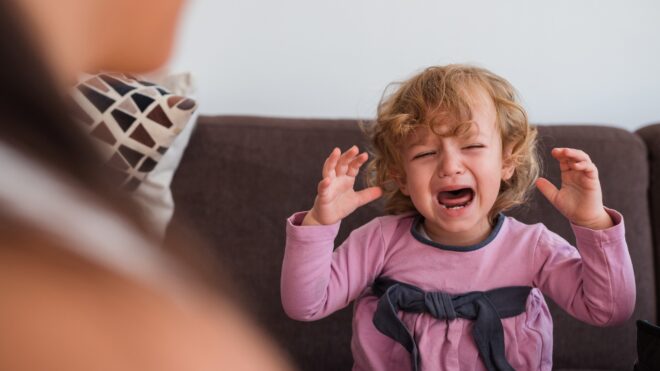
Adoption is a beautiful thing that saves children’s lives and gives families a second chance at happiness. But that’s not to say it doesn’t come with its complications. If you have both biological and adopted children, then you may have had difficult conversations about whether the adopted kid is your “real” child or not. Sometimes they'll shout it during an argument, sometimes their siblings will say it while bickering, and it can be heartbreaking for everyone involved.
Some adopted children feel like they don’t truly belong with a family, even if they love them, because they don’t share the same bloodline as their siblings. Whether they’ve been bullied into that feeling by other kids, or by the stigma from society, it’s your job as a parent to make sure that fear doesn’t persist.
This stigma is fought best with love, inclusion, and affection, but also with a celebration of their differences, rather than an outright rejection of them. Pretending the main difference doesn’t exist will make the child feel lied to, and even silently shunned for something they can’t control. On the other hand, having open, honest, and positive conversations about their adoption will normalize it, and make them feel loved for who they are, as opposed to who they may think they should be.
If you’re unsure of how to approach these differences, here are a few ideas.
Celebrate their adoption day, not just their birthday.

Viewing the adoption day as a day to celebrate rather than a technicality will show your child that they weren’t just dropped on your doorstep, but truly wanted. On their siblings' birthdays, adopted kids may feel left out as you tell stories about the day they were born. Talk about the adoption process with just as much enthusiasm as the day you went into labor. Have a party on each anniversary of the adoption, just as you would a birthday. Obviously, this party can be as budget-friendly as the next one — maybe a bowling outing or a nice dinner at home.
Make sure your kid knows you treasure the day you adopted them, regardless of what age they were at the time or where they came from. If your biological child feels left out that their sibling essentially has two birthdays, find another reason to celebrate them for who they are — when they graduated from elementary school, an anniversary of when they got a cast off, or won an award, anything really. A cake and a trip to the movies will go a long way.
Give them access to their history without making them feel ‘othered.’

Researching where one comes from is an important part of self-exploration, so when adopting a child, it’s good to give them access to their biological roots. However, sometimes offering up a lot of information about where your child came from can make them feel like they don't actually belong to your family. It may not be true, but it could feel that way to a child who may already feel like an outsider. Imagine listening to you talk first-hand about their sibling's births, and the first stages of their life, then listen to you hand them a bunch of secondary resources showing how separate from you they once were. It would make anyone feel left out.
Make sure that when you offer this information — starting really early also helps — make sure they know it's under their control, and that you’re not just dumping it on them as a way to know what separates you.
More from LittleThings: How To Tell Your Child They Were Adopted
Build an equal connection between your children.

Whether it’s an older kid making sure they hold their sibling’s hand when they cross the street, or helping to plan their birthday party, make sure your children are involved in their siblings' lives and not just sharing a house. Building the connection between bio and non-bio kids to an equal degree will make them feel like equals in your eyes and their own. Giving them different responsibilities that involve one another will make sure they view each other as important members of the family, and your adopted child won’t feel like they're just a roommate in the house.
Obviously, children are given a wider learning curve when it comes to emotional intelligence, but your adopted child will only feel as welcomed by you as they are by their siblings. So making sure the entire household shares your attitude will help considerably. Having a separation between siblings will be damaging on both ends, so making sure they take care of one another and have responsibilities for each other is vital in keeping them close and on equal footing.
Create new family traditions.

Instead of only celebrating traditions passed down from distant relatives, be sure to create new ones with all of your children in mind. Making a big deal about how they are the start of these traditions, rather than just witness to them, will make them feel both in control of their own culture and feel that they have more in common with their siblings. You can combine this mentality with taking traditions from your adopted kid’s family too, connecting the two bloodlines through culture.
Whether it's how you celebrate the holidays, how you eat/serve dinner in the evenings, or family movie/game night, ask the kids how you can make it fun, and memorable, and how they can contribute.







